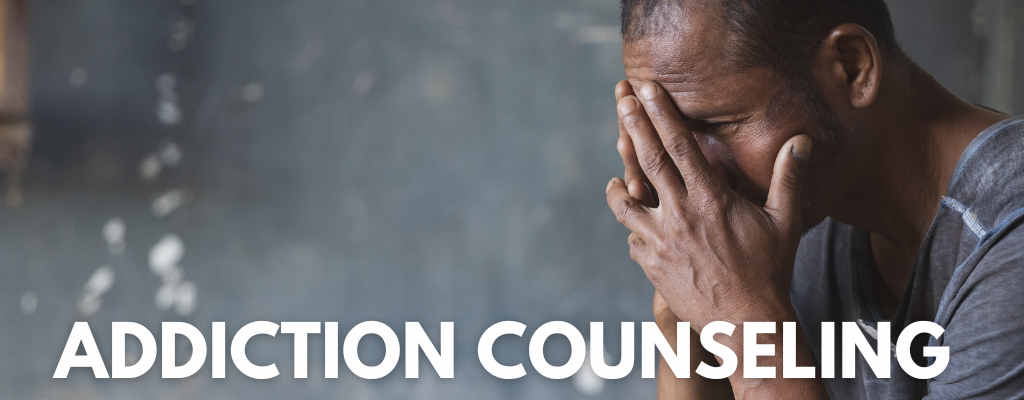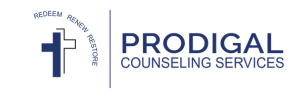
Addiction Counseling: An Overview
Addiction counseling is a therapeutic process aimed at helping individuals overcome substance use disorders, behavioral addictions (such as gambling, sex, or internet addiction), and other addictive behaviors. The goal of addiction counseling is to support individuals in understanding the root causes of their addiction, develop coping skills to manage cravings, and ultimately lead a healthier and more fulfilling life in recovery. Addiction counselors work closely with clients to help them recognize unhealthy patterns, set achievable recovery goals, and develop the strategies necessary for long-term sobriety and well-being.
What Is Addiction Counseling?
Addiction counseling is a specialized form of therapy focused on treating individuals struggling with addiction. Whether the addiction involves drugs, alcohol, gambling, food, or other behaviors, the counseling process seeks to address the physical, emotional, and psychological aspects of addiction. Addiction counselors are trained to help individuals examine the underlying factors contributing to their addiction, such as trauma, mental health issues, or environmental factors, and work with them to develop healthier coping mechanisms and lifestyle changes.
Addiction counseling can take place in individual, group, or family therapy formats and often involves ongoing support to help individuals stay on track during their recovery journey. Counselors use various therapeutic techniques to help clients manage triggers, build resilience, and develop the skills needed to avoid relapse.
Why Is Addiction Counseling Important?
Addiction counseling is critical because addiction can have profound effects on an individual’s mental health, relationships, career, and overall quality of life. Left untreated, addiction can lead to a range of consequences, including physical health problems, financial difficulties, legal issues, and emotional distress. Addiction counseling helps individuals understand the impact of their addiction on their lives and provides them with the tools to make lasting changes.
Addiction counseling also helps individuals develop healthy coping mechanisms to replace addictive behaviors, allowing them to lead more balanced and fulfilling lives. By addressing the root causes of addiction and providing support, addiction counseling increases the likelihood of successful recovery and long-term sobriety.
Common Types of Addiction Treated in Counseling
Addiction counseling can be effective for a wide variety of substance use and behavioral addictions, including:
- Substance Use Disorders (SUD): Addiction to alcohol, drugs (prescription, illicit), nicotine, or other substances.
- Gambling Addiction: A compulsive need to gamble, often leading to financial, social, and legal consequences.
- Sexual Addiction: An uncontrollable and compulsive need for sexual behavior, often resulting in personal and relationship difficulties.
- Food Addiction: A compulsive relationship with eating, often involving binge eating or using food as a coping mechanism for emotional distress.
- Internet and Gaming Addiction: Compulsive use of the internet, video games, or social media, leading to neglect of other areas of life and relationships.
- Shopping Addiction: Excessive shopping behavior, often driven by emotional or psychological factors, leading to financial or personal problems.
Approaches in Addiction Counseling
Addiction counseling typically involves a variety of therapeutic approaches tailored to the individual’s specific needs and the type of addiction being addressed. Some of the most common approaches used in addiction counseling include:
- Cognitive Behavioral Therapy (CBT): CBT is one of the most effective approaches for addiction counseling. It helps individuals identify and change negative thought patterns and behaviors that contribute to addiction. CBT teaches clients how to cope with cravings, avoid triggers, and develop healthier thinking habits.
- Motivational Interviewing (MI): MI is a client-centered, directive approach that focuses on enhancing an individual’s motivation to change. Counselors using MI work to explore the client’s ambivalence about addiction and help them recognize the benefits of recovery. MI is particularly helpful for individuals who may not yet be fully committed to the idea of sobriety.
- 12-Step Facilitation: This approach is based on the principles of 12-step programs like Alcoholics Anonymous (AA) or Narcotics Anonymous (NA). It involves helping individuals recognize the importance of spiritual growth, self-reflection, and support networks in their recovery journey.
- Dialectical Behavior Therapy (DBT): DBT combines aspects of cognitive-behavioral therapy with mindfulness and emotional regulation strategies. It is particularly useful for individuals struggling with intense emotions, which may contribute to their addictive behaviors. DBT helps clients improve interpersonal effectiveness and manage stress.
- Contingency Management: This technique uses positive reinforcement to encourage healthy behaviors and discourage addictive behaviors. Clients may receive rewards or incentives for meeting recovery-related goals, such as attending therapy sessions or remaining sober for a certain period.
- Solution-Focused Therapy: This is a short-term approach that helps individuals identify practical solutions to the problems they face. In addiction counseling, solution-focused therapy can help clients recognize their strengths and develop a clear action plan for maintaining their sobriety.
- Family Therapy: Addiction often affects not only the individual but also their family members. Family therapy helps the family members understand addiction, improve communication, and develop healthier ways to support the individual’s recovery. It can also address family dynamics that may have contributed to the addiction.
- Group Therapy: Group counseling allows individuals to share their experiences, challenges, and progress with others who are going through similar situations. Group therapy provides a sense of community, accountability, and shared understanding, which can be particularly helpful during the recovery process.
The Addiction Counseling Process
The process of addiction counseling typically follows several stages:
- Assessment and Intake: The first step in addiction counseling involves an assessment to understand the individual’s addiction history, current struggles, and any underlying issues (such as mental health disorders). The counselor will also evaluate the severity of the addiction and determine the appropriate course of treatment.
- Setting Goals: In collaboration with the counselor, the individual sets specific recovery goals. These goals may include achieving sobriety, improving emotional regulation, repairing relationships, and developing healthy coping strategies.
- Therapy Sessions: Addiction counseling sessions involve therapeutic techniques aimed at helping individuals address the root causes of their addiction, manage cravings, and develop healthier behaviors. Sessions may be individual or group-based, depending on the treatment plan.
- Relapse Prevention: Relapse is common in addiction recovery, and relapse prevention is a crucial part of counseling. Individuals work with their counselor to identify triggers, create strategies to manage cravings, and strengthen their commitment to long-term recovery.
- Aftercare and Continued Support: Recovery doesn’t end with counseling. Aftercare involves ongoing support and monitoring to help individuals maintain their sobriety and continue their progress. This may involve continued therapy, participation in support groups, and periodic check-ins with the counselor.
Why Seek Addiction Counseling?
There are several reasons individuals may seek addiction counseling, including:
- Breaking the cycle of addiction: Addiction counseling helps individuals break free from the compulsive behavior that drives their addiction and develop healthier coping mechanisms.
- Improving mental health: Many individuals with addictions also struggle with mental health issues such as depression, anxiety, or trauma. Counseling helps address both the addiction and underlying mental health concerns.
- Regaining control: Addiction often takes control of a person’s life, leading to feelings of powerlessness. Counseling helps individuals regain control over their lives and their choices.
- Building a support network: Addiction counseling provides individuals with a safe, nonjudgmental space where they can share their experiences and build a support network of others in recovery.
Conclusion
Addiction counseling is a vital component of the recovery process for individuals struggling with addiction. By providing specialized therapeutic interventions and support, addiction counseling helps individuals understand the roots of their addiction, develop new coping skills, and work toward long-term recovery. Whether addressing substance use disorders, behavioral addictions, or co-occurring mental health issues, addiction counseling offers individuals the opportunity to reclaim their lives and move toward a healthier, more fulfilling future.
